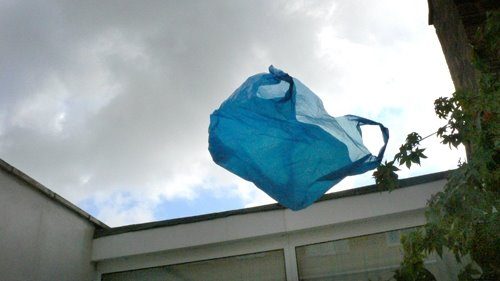Is this end of the road for plastic?

If global trends around the world are anything to by, it seems that the plastic industry’s days are numbered. Major cities like San Francisco, Hong Kong, Paris and Melbourne have already kick-started the biodegradable revolution, last year, by banning all plastic shopping bags. In Australia, almost 90% of all retailers have committed themselves to a voluntary government program to wean the nation off its dependency on plastic. Apparently, Australians have been using nearly 7 billion plastic bags a year! 2008 looks just as promising with the news that both Israel and China have begun the process of reducing the problem of pollution in their respective countries by banning the production of ultra-thin plastic bags and charging consumers for plastic shopping bags. Staying with the East, reports from Taiwan show that there has been a staggering 69% drop in the use of plastic products as a result of a law that came into effect last year which makes it mandatory for restaurants and retailers to charge for plastic bags, containers and utensils. In the Indian state of Maharashtra, of which Mumbai is the capital, a ban on the sale, use and manufacture of plastic bags will come into effect in September this year.
Aside from the litter and pollution generated by the tons of plastic packaging that is discarded, one of the most devastating environmental consequences of our rampant, global throwaway culture is on marine life. According to Planet Ark, an international environmental group, about 100,000 whales, seals, turtles and other marine animals are killed by plastic packaging each year worldwide. In September of 2007, an international clean up of coastal areas initiated by Ocean Conservancy yielded over 354,000 plastic bags. This isn’t surprising considering that about 500 billion to 1 trillion plastic bags are used worldwide every year. Of that figure, Americans use 84 billion plastic bags annually, according to a recent report by Californians Against Waste (CAW). Read more about the “plastic soup” recently discovered in the Pacific Ocean which stretches from Hawaii to Japan – making it the world’s largest rubbish dump.
Here on the African continent, some headway has also been made to rid rural and urban communities from the environmental damage caused by plastic packaging. Plastic is not only damaging to precious ground water and soil but also to indigenous plants and animals that often end up ingesting it. As a result, the UN Environment Programme ((UNEP) and other environmental groups are at the forefront of a campaign, specifically targeting the plastic problem in Africa. Rwanda and Eritrea were amongst some of the first to impose a ban on plastic bags, followed by Kenya and Zanzibar.
In South Africa, although we have had a levy on plastic bags since 2003, it has not discouraged consumers from using plastic. Clearly, the government is going to have to follow the example of our fellow African countries and impose a ban on plastic if we are going to win the war on waste. The good news is that the demand for environmentally-friendly packaging in SA has seen a substantial increase in the use of biodegradable plastic.
